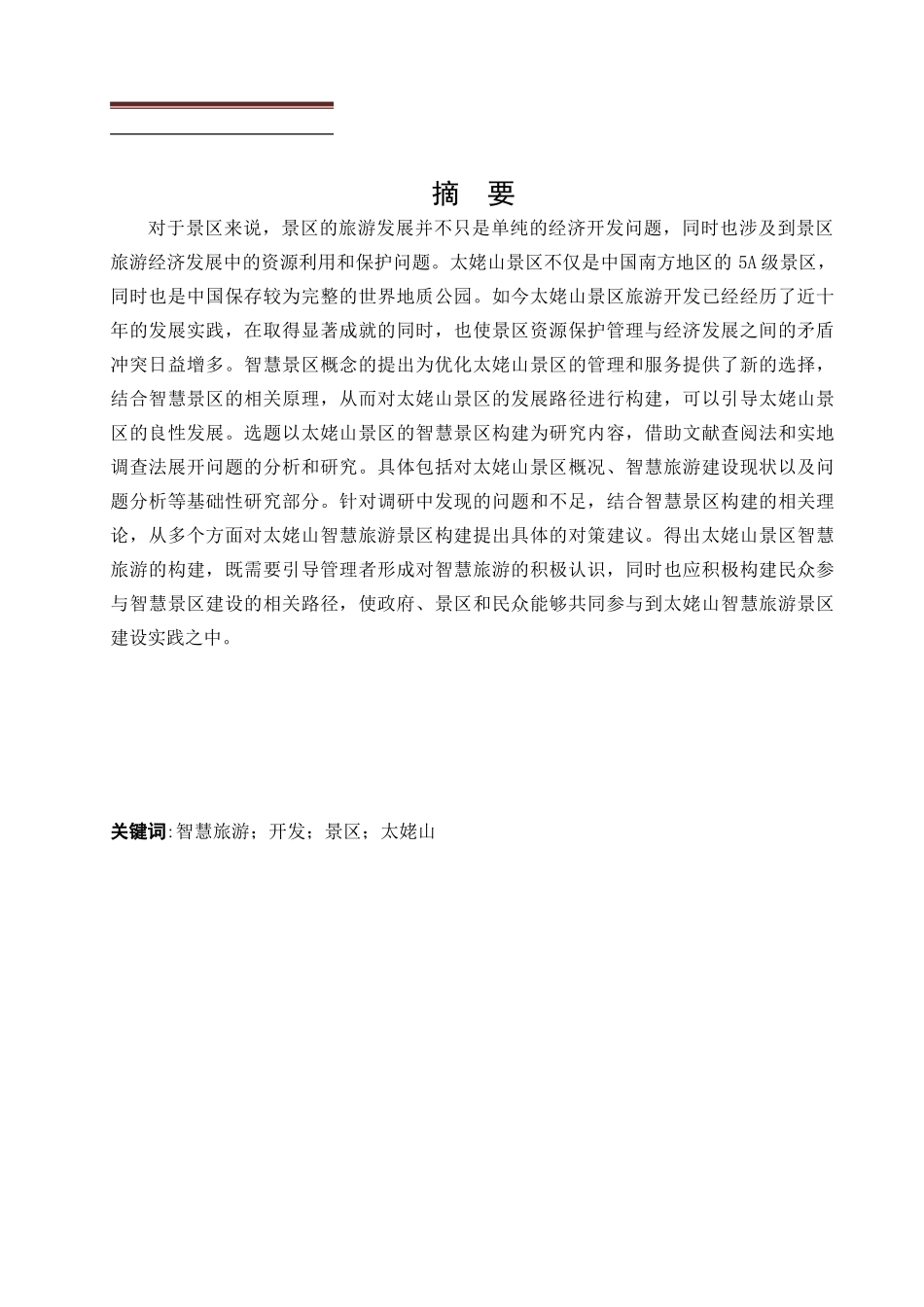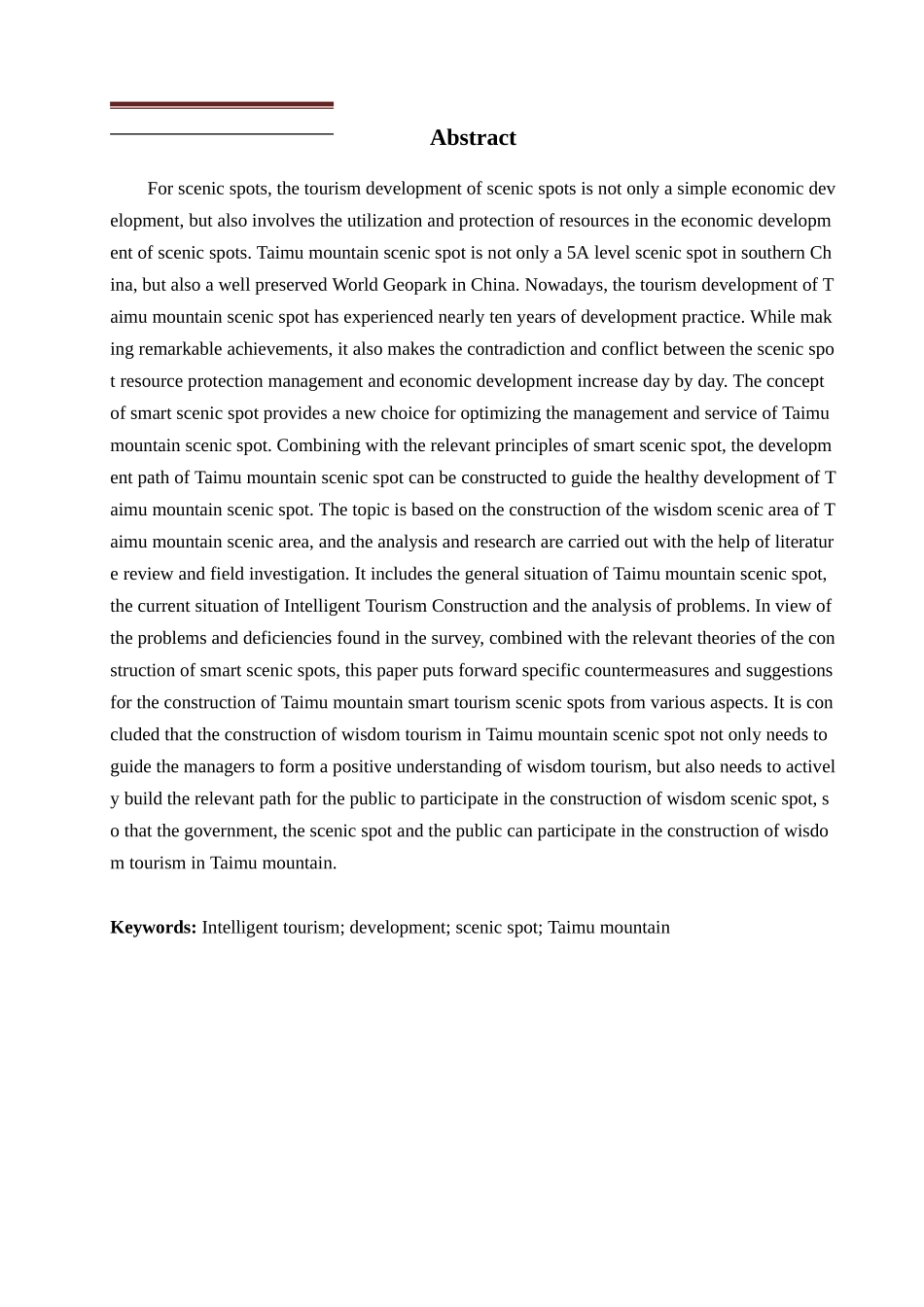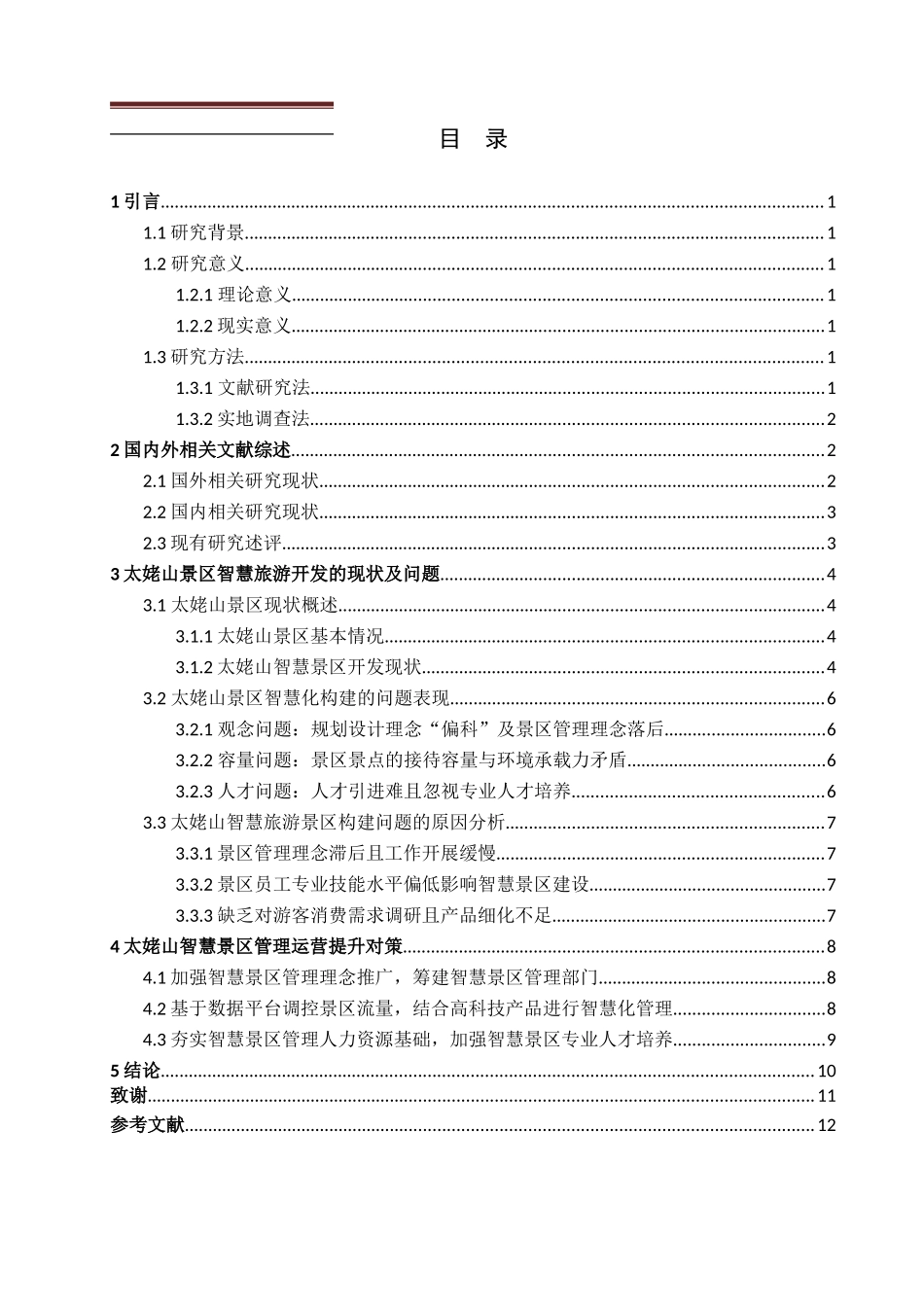摘 要对于景区来说,景区的旅游发展并不只是单纯的经济开发问题,同时也涉及到景区旅游经济发展中的资源利用和保护问题。太姥山景区不仅是中国南方地区的 5A 级景区,同时也是中国保存较为完整的世界地质公园。如今太姥山景区旅游开发已经经历了近十年的发展实践,在取得显著成就的同时,也使景区资源保护管理与经济发展之间的矛盾冲突日益增多。智慧景区概念的提出为优化太姥山景区的管理和服务提供了新的选择,结合智慧景区的相关原理,从而对太姥山景区的发展路径进行构建,可以引导太姥山景区的良性发展。选题以太姥山景区的智慧景区构建为研究内容,借助文献查阅法和实地调查法展开问题的分析和研究。具体包括对太姥山景区概况、智慧旅游建设现状以及问题分析等基础性研究部分。针对调研中发现的问题和不足,结合智慧景区构建的相关理论,从多个方面对太姥山智慧旅游景区构建提出具体的对策建议。得出太姥山景区智慧旅游的构建,既需要引导管理者形成对智慧旅游的积极认识,同时也应积极构建民众参与智慧景区建设的相关路径,使政府、景区和民众能够共同参与到太姥山智慧旅游景区建设实践之中。关键词:智慧旅游;开发;景区;太姥山 AbstractFor scenic spots, the tourism development of scenic spots is not only a simple economic development, but also involves the utilization and protection of resources in the economic development of scenic spots. Taimu mountain scenic spot is not only a 5A level scenic spot in southern China, but also a well preserved World Geopark in China. Nowadays, the tourism development of Taimu mountain scenic spot has experienced nearly ten years of development practice. While making remarkable achievements, it also makes the contradiction and conflict between the scenic spot resource protection management and economic development increase day by day. The concept of smart scenic spot provides a new choice for optimizing the management and service of Taimu mountain scenic spot. Combining with the relevant principles of smart scenic spot, the development path of Taimu mountain scenic spot...


